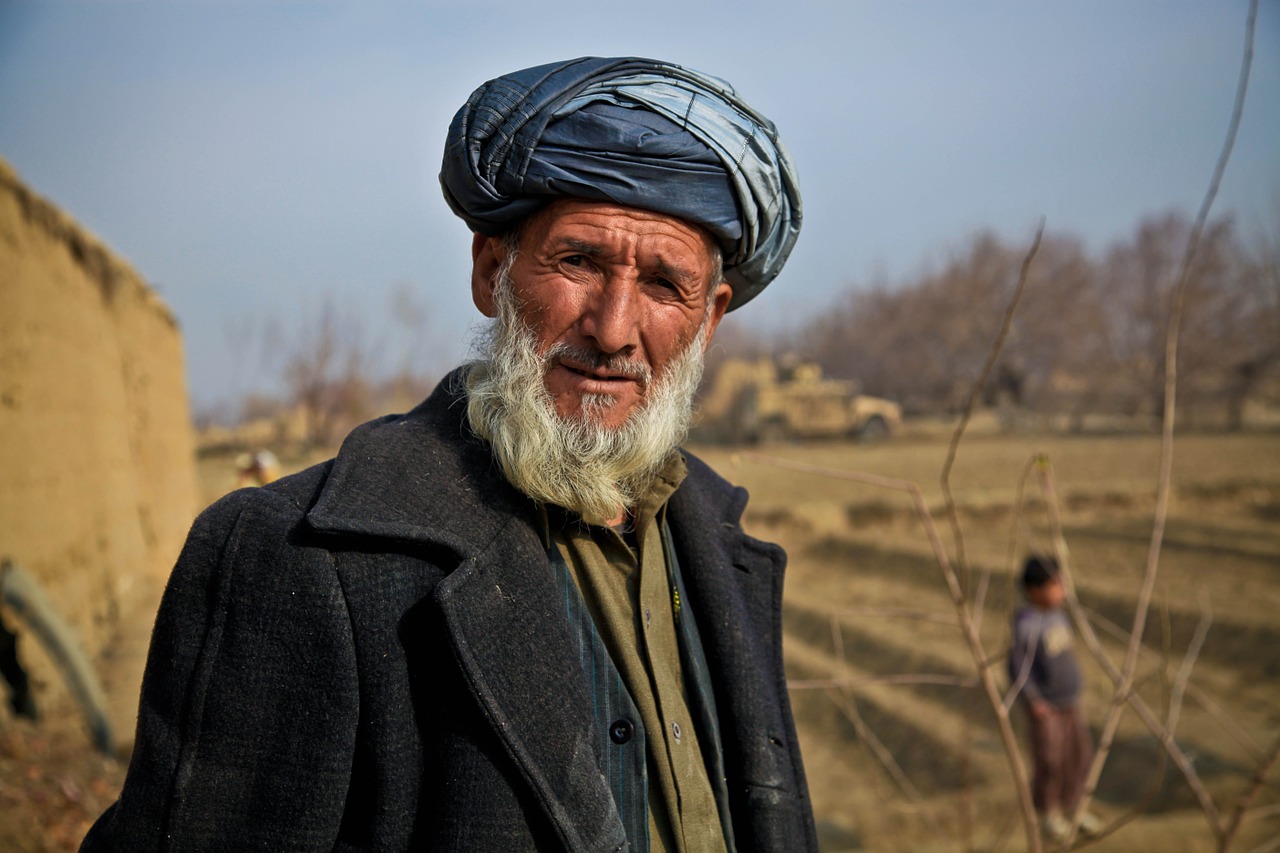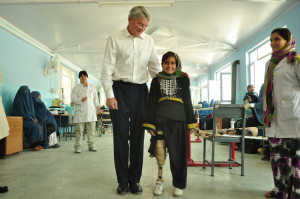 Established in 1982 and active in Afghanistan since 1987, the independent aid organization Handicap International (HI) secures the basic needs, well-being, and rights of people with disabilities and other vulnerable populations in 57 developing countries. Originally a single group based in Lyons, France, the organization has gradually incorporated associations from seven other countries to form the Handicap International Federation. Each branch mounts campaigns to increase public awareness of the issues addressed by Handicap International. The different branches also raise funds, recruit, and provide operational support.
Established in 1982 and active in Afghanistan since 1987, the independent aid organization Handicap International (HI) secures the basic needs, well-being, and rights of people with disabilities and other vulnerable populations in 57 developing countries. Originally a single group based in Lyons, France, the organization has gradually incorporated associations from seven other countries to form the Handicap International Federation. Each branch mounts campaigns to increase public awareness of the issues addressed by Handicap International. The different branches also raise funds, recruit, and provide operational support.
Concentrating its work in regions where people with disabilities face economic hardship, conflict, natural disasters, and exclusion, HI collaborates with local partners to deliver wellness and rehabilitative services, as well as programs that advance equal social and economic opportunity for its beneficiaries. HI also assists victims of military explosives, helping prevent casualties due to landmines and cluster bombs by advocating for international bans of these weapons, clearing unexploded ordnance, and educating at-risk communities on how to avoid explosives.
Challenging Circumstances in Afghanistan
Several factors contribute to large number of disabling injuries in Afghanistan, and chief among them is the fact that the nation has one of the world’s highest amounts of planted landmines and unexploded cluster bomb sub-munitions. Besides living in close proximity to hidden explosive devices, Afghans cope with the perils of an economy depressed by years of war, continuing armed conflict, and a natural landscape to frequent drought, floods, and earthquakes.
Given this context, HI focuses its work in Afghanistan on increasing access to functional rehabilitation services, guaranteeing aid for victims of explosive devices, and supporting organizations that advocate for the rights of disabled Afghans. HI also undertakes crucial efforts to reduce the incidence of accidents due to unexploded war remnants.
Long-Term Rehabilitative Care
Taking a sustainable approach to developing rehabilitation services, HI builds local rehabilitation centers and facilitates the training of physiotherapists, psychometricians, prosthetic and orthotic technicians, and other medical professionals to staff the facilities. These practitioners help patients improve their independence by employing orthopedic methods and technologies tailored to local circumstances and adapted to available resources.
HI runs rehabilitation services in Kandahar and Herat. Located within a regional hospital, the Kandahar clinic utilizes a network of trained outreach volunteers to contact victims of explosive devices and people with other disabilities for referral to therapeutic care. In conjunction with physiotherapy sessions, the center provides patients with mobility aids, such as crutches and wheelchairs, as well as fittings for prostheses and orthoses that are fabricated at an onsite workshop. Staff at the Kandahar center have also created innovative upper-limb prostheses and introduced new methods of treating clubfoot.
The HI project in Herat delivers rehabilitation services through a dedicated rehabilitation center at Herat Regional Hospital and seven community health clinics. At other Herat-area hospitals, HI supplies financial and technical assistance to train staff in physiotherapy.
More broadly, HI seeks to work with the government of Afghanistan to enhance capacity and build up the rehabilitation sector as an integral component of the national health care system. By advocating for the incorporation of rehabilitation services into the Ministry of Health’s basic health care policies, HI strives to provide Afghans with disabilities with medical coverage on par with that of all other citizens.
Assisting Victims of Explosive Devices
Civilians (nearly half of them children) accounted for 99% of the victims of the more than 1,000 reported explosives-related accidents in Afghanistan in 2013. In a country with an estimated 4,000 square kilometers of land containing unexploded munitions, detonation of these devices is a regular occurrence, often taking place during such everyday activities as clearing land, tending flocks, or gathering firewood.
As a State Party of the Mine Ban Treaty and the Convention of Cluster Munitions, Afghanistan has committed to providing medical care and helping with the social and economic assimilation of victims of explosive devices. HI facilitates these endeavors by contributing to the development of the nation’s victim assistance plan, through which Afghanistan systematically implements measures necessary to comply with these two international covenants. The group also works to ensure that these initiatives align with the Convention on the Rights of Person with Disabilities.
HI helps Afghans injured by explosive munitions by offering mental health and social support services. By modifying physical environments and creating inclusive social contexts, HI removes barriers that inhibit the participation of those with disabilities in the civil life of their communities. HI also monitors and assesses the progress of victim assistance initiatives across Afghanistan using tools developed in collaboration with the Ministry of Labor, Social Affairs, Martyrs & Disabled (MoLSAMD).
Helping Those with Disabilities Organize and Secure Rights
Dedicated to giving Afghans with disabilities a stronger voice in their communities, HI supports the formation and strengthening of local Disabled People’s Organizations (DPOs). HI shows DPOs how to collectively organize and helps them build relationships with domestic and international partner organizations. By creating DPOs, people with disabilities gain a better understanding of their rights and can work together to advocate for their interests. Thus empowered, DPO members can effectively petition local authorities for meaningful change and plan development projects that take into account the concerns and rights of those with disabilities.


